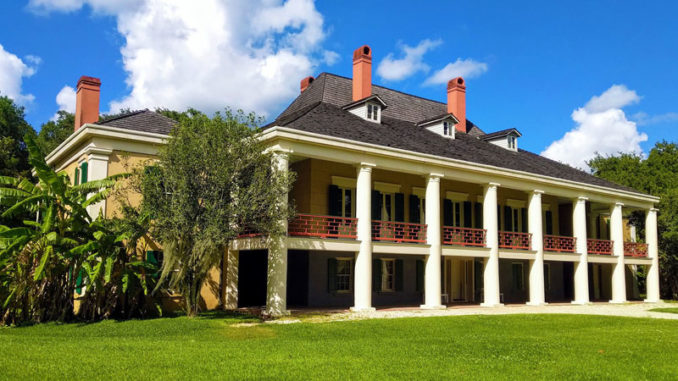
While the coronavirus pandemic has brought undoubted catastrophe to businesses both small and large, one local organization is grappling with the next steps to take to ensure doors stay open.
Tracy Smith, executive director of Destrehan Plantation, said the pandemic has had an immeasurably negative effect on Louisiana’s travel and tourism industry.
“It was a very slow opening,” Smith said of re-opening after being shut down from March 17 – May 15. “The majority of the people who visit us are from out of town. With the city of New Orleans pretty much shut down, as well as the rest of the country, there was no question that we in the tourism industry – hotels, restaurants, airlines and others – would feel the affects more so than other industries.”
Smith said since re-opening, business has not returned to normal.
“We really depend mostly on travel tourism, and we have no buses coming here,” he said. “Our tours bring in the most money. The real revenue generator are the tours. It’s those smaller dollar amounts that add up.”
Weddings, cottage rentals, festivals and holiday events are also revenue generators.
An average of 110 tourists a day – about 40,000 a year – filled the ground of Destrehan Plantation in 2019.
“We’re looking at … at this point … I’ve budgeted for twenty five percent of that,” Smith said. The end of June and into July started out a little better, we were at thirty five to forty percent, but now with the new mandates and proclamations with not just our state but other sates our numbers are way down.”
On the day of this interview, only one visitor had visited the plantation.
Some future weddings are booked, Smith said, but uncertainty looms there too.
“We’re looking at the possibility of losing even the rebooked ones,” he said. “Some brides who are originally booked for the fall are starting to worry. We have to move forward, and we have to be able to have our weddings to get that revenue to stay afloat.”
When asked if an additional layer to crippling sales has been societal pushback to close plantations because of the slave history, Smith said the plantation is an important part of Destrehan history.
“Good or bad, this is a part of the community,” he said. “There’s a lot of things we’re trying to do here and a lot of history yet to be told.”
New exhibits devoted to slave history and experiences, as well as a genealogy lab, are currently being planned.
“We continue to dig up the history of Destrehan Plantation and the surrounding community,” he said. “America is continuing to learn from its past and continuing to evolve. That’s our contribution … to tell that history.”
Smith said there are several ways to support the plantation in this time of economic turmoil, including scheduling a tour or renting a cottage for an overnight stay.
Becoming a member of the River Road Historical Society – visit www.destrehanplantation.org/mission for more information – is another way to bolster the organization. Smith said members receive a quarterly newsletter, complimentary tickets plantation festivals and unlimited free tours.
“If we can have the festival in November and do the same level we did last year and with what we have in reserves I think we’re good for the end of the year and into the next couple of months into next year,” Smith said. “We don’t have a lot of debt, but we might have to look at taking on more debt to survive. We’ve trimmed expenses as much as we can. It’s a difficult time.”
A plantation fundraiser has been planned for August 14, and Smith said depending on how successful it is more may be planned.
Lunch and dinner meals will be available for pick up Aug. 14 at the Mule Barn, located at 13034 River Road in Destrehan. The menu consists of jambalaya, white beans, catfish and garlic bread. Peach cobbler dessert and bottled drinks will be available at an additional cost.
Each pre-ordered and pre-paid meal is $9. Purchases made the day of the event are $10.
To pre-order and pre-pay, visit www.destrehanplantation.org/events/river-road-historical-society-fundraiser.





Be the first to comment